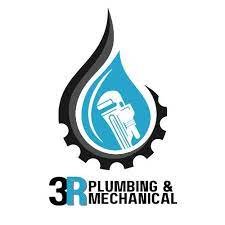Energy-Saving Tips for Heating and Cooling Your Home Efficiently
Maintaining a comfortable home environment throughout the year can be a challenge, especially when it comes to managing energy costs. Heating and cooling account for nearly half of the energy use in a typical home, making it crucial to find ways to improve efficiency and reduce utility bills. Fortunately, there are numerous strategies you can implement to save energy without sacrificing comfort. In this comprehensive guide, we’ll explore energy-saving tips for heating and cooling your home efficiently.
1. Regular HVAC Maintenance
Importance of Regular Maintenance:
One of the most effective ways to ensure your heating and cooling systems operate efficiently is to perform regular maintenance. A well-maintained HVAC system runs more smoothly, uses less energy, and lasts longer.
Tips for Maintenance:
Change Filters Regularly: Replace HVAC filters every 1-3 months to keep your system running efficiently. Dirty filters restrict airflow, causing the system to work harder.
Schedule Professional Tune-Ups: Have your HVAC system inspected and serviced by a professional at least once a year. This helps identify potential issues before they become costly repairs.
Clean Vents and Ducts: Ensure that vents and ducts are clean and unobstructed to improve airflow and efficiency.
2. Install a Programmable Thermostat
Benefits of Programmable Thermostats:
A programmable thermostat allows you to set specific temperatures for different times of the day, optimizing energy use based on your schedule.
Energy-Saving Tips:
Set It and Forget It: Program your thermostat to lower the temperature when you’re asleep or away from home and raise it when you’re awake and active.
Use Zoning: If your thermostat supports zoning, set different temperatures for various areas of your home to avoid heating or cooling unused spaces.
3. Seal Leaks and Insulate
Preventing Heat Loss:
Air leaks and poor insulation can significantly reduce the efficiency of your heating and cooling systems by allowing conditioned air to escape.
How to Seal Leaks:
Weatherstripping and Caulking: Apply weatherstripping around doors and windows and use caulk to seal gaps and cracks.
Insulate Attic and Walls: Ensure your attic and walls are well-insulated to prevent heat transfer. Insulating your attic can save up to 10-50% on heating costs.
4. Use Ceiling Fans
Maximizing Air Circulation:
Ceiling fans can help distribute air more evenly throughout your home, reducing the load on your HVAC system.
Tips for Using Ceiling Fans:
Summer Mode: Set your ceiling fans to rotate counterclockwise in the summer to create a cooling breeze.
Winter Mode: Reverse the direction to clockwise in the winter to push warm air down from the ceiling.
5. Upgrade to Energy-Efficient HVAC Systems
Investing in Efficiency:
If your HVAC system is more than 10-15 years old, it may be time to consider upgrading to a more energy-efficient model. Modern systems are designed to use less energy while providing better comfort.
Choosing the Right System:
High SEER Ratings: Look for systems with high Seasonal Energy Efficiency Ratio (SEER) ratings for air conditioners and Heat Seasonal Performance Factor (HSPF) ratings for heat pumps.
ENERGY STAR Certification: Choose HVAC systems that are ENERGY STAR certified for verified energy savings.
6. Utilize Natural Energy Sources
Harnessing Nature:
Take advantage of natural energy sources to reduce your reliance on HVAC systems.
Tips for Using Natural Energy:
Solar Gain: Open curtains and blinds during the day to let sunlight naturally warm your home in the winter. Close them at night to retain heat.
Shade and Ventilation: Use trees, awnings, and shades to block direct sunlight in the summer, keeping your home cooler. Ensure proper ventilation to let cool air circulate.
7. Optimize Thermostat Settings
Finding the Right Temperature:
Setting your thermostat to the optimal temperature can make a significant difference in energy consumption.
Recommended Settings:
Winter: Set your thermostat to 68°F when you’re home and lower it by 7-10°F when you’re asleep or away.
Summer: Set your thermostat to 78°F when you’re home and increase it by 7-10°F when you’re away.
8. Improve Window Efficiency
Enhancing Windows:
Windows can be a major source of heat loss and gain. Improving their efficiency can help maintain a consistent indoor temperature.
Tips for Window Efficiency:
Double-Glazed Windows: Consider installing double-glazed or energy-efficient windows to reduce heat transfer.
Window Treatments: Use heavy curtains, shades, or blinds to insulate windows and block heat.
9. Maintain Proper Humidity Levels
Balancing Humidity:
Proper humidity levels can improve comfort and reduce the load on your HVAC system.
Tips for Managing Humidity:
Use Humidifiers and Dehumidifiers: Maintain indoor humidity levels between 30-50% for optimal comfort.
Ventilation: Ensure proper ventilation in high-humidity areas like bathrooms and kitchens to prevent excess moisture buildup.
10. Adopt Energy-Saving Habits
Daily Habits for Efficiency:
Incorporate energy-saving habits into your daily routine to maximize savings.
Energy-Saving Tips:
Turn Off Fans and Lights: Turn off ceiling fans, lights, and other appliances when not in use.
Close Doors and Vents: Close doors and vents in unused rooms to avoid heating or cooling empty spaces.
Cook Smart: Use your oven and stove during cooler times of the day to prevent adding extra heat to your home in the summer.
Implementing these energy-saving tips can help you reduce your heating and cooling costs while maintaining a comfortable home environment. Regular maintenance, efficient equipment, and smart habits all contribute to improved energy efficiency. By making small changes and investments, you can enjoy significant savings and a more sustainable home.
At 3R Plumbing & Mechanical, we specialize in energy-efficient HVAC solutions to help you optimize your home’s heating and cooling systems. Contact us today at 781-312-0316 or visit our website at 3R Plumbing & Mechanical to learn more about our services and how we can help you achieve greater energy efficiency in your home.
